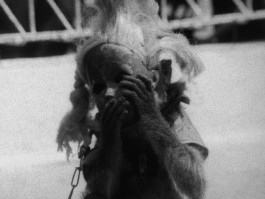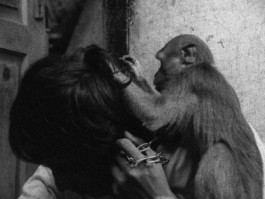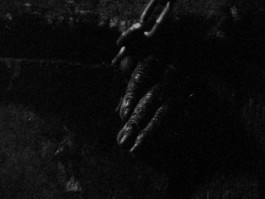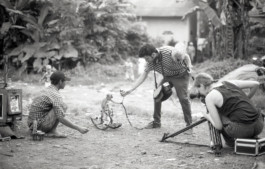



The Masked Monkeys
16mm | 30 min | b/w | 2015
The masked arts of Indonesia are thousands of years old. They are commonly referred to as wayang topeng (wayang: shadow or puppet; topeng: mask). It is believed that wayang topeng originated from tribal death rites, where masked dancers were considered the interpreters of the gods.
In the lowest rungs of Javanese society a unique manifestation of these masked traditions can be found. Its practitioners are performers, but they are not merely entertainers. Their aim is not simply to amuse. Their ambition is to be respected, to be honored, to be successful. They have embarked on a path they know will lead to a higher state, to an honorable and noble position.




The Masked Monkeys
16mm | 30 min | b/w | 2015
The masked arts of Indonesia are thousands of years old. They are commonly referred to as wayang topeng (wayang: shadow or puppet; topeng: mask). It is believed that wayang topeng originated from tribal death rites, where masked dancers were considered the interpreters of the gods.
In the lowest rungs of Javanese society a unique manifestation of these masked traditions can be found. Its practitioners are performers, but they are not merely entertainers. Their aim is not simply to amuse. Their ambition is to be respected, to be honored, to be successful. They have embarked on a path they know will lead to a higher state, to an honorable and noble position.







